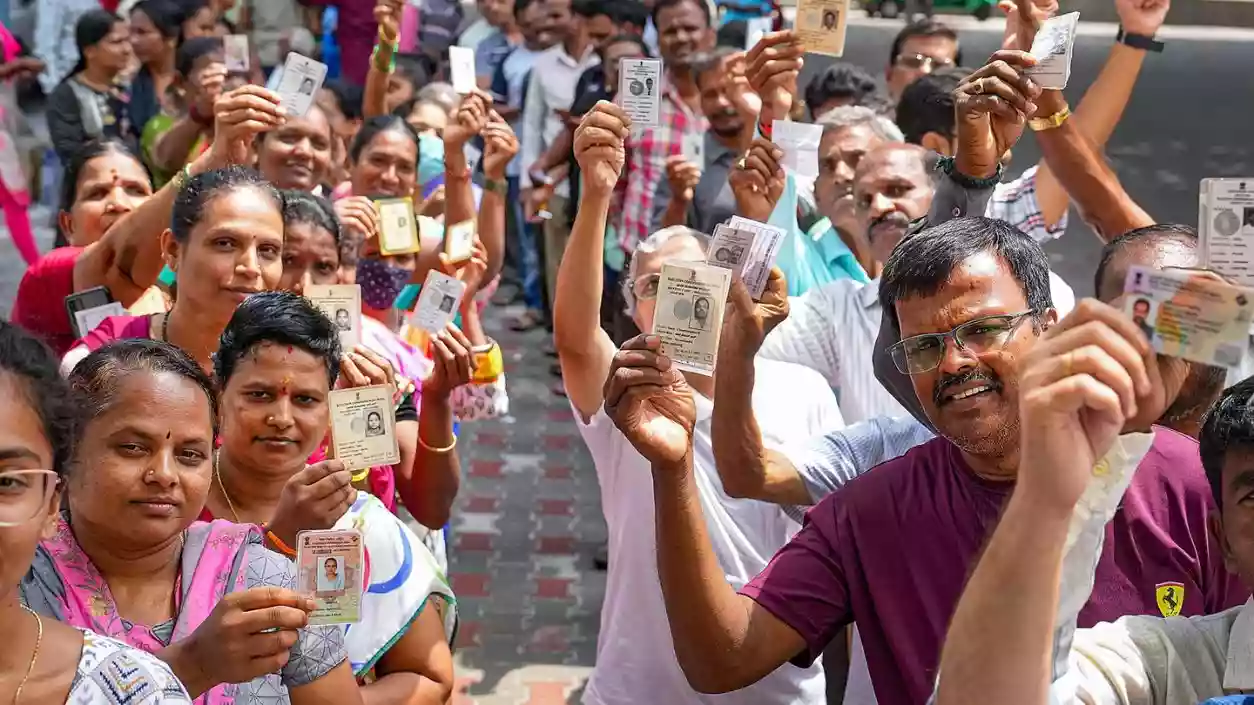Speeding bus mows down pedestrian at MG Road more, driver flee
.gif)
.gif)

The Union Cabinet has approved the 'One Nation, One Election' Bill, which seeks to hold simultaneous elections for the Lok Sabha and state assemblies, as well as urban bodies and panchayats, within a 100-day window. The proposal aims to reduce the frequency of elections, save government expenditure, and streamline the electoral process. The bill is expected to be introduced during the ongoing winter session of Parliament. However, its passage faces challenges as it has drawn significant criticism from opposition parties.
Congress leaders have strongly opposed the bill. Congress MP K. Suresh reiterated that the party remains steadfast in its opposition, stating, “Our party has already cleared our stand from the beginning, our stand has not changed. We are opposing it. Entire opposition is opposing it.” The Congress has called for the bill to be referred to a Joint Parliamentary Committee (JPC) for detailed examination. Jairam Ramesh, another Congress leader, emphasized that a broader debate is required to address potential impacts of the proposal on India’s democratic framework.
Opposition from regional parties has been equally vocal. Tamil Nadu Chief Minister MK Stalin criticized the bill, calling it “draconian” and “anti-democratic.” Stalin expressed concerns that the move would undermine regional voices, erode federalism, and disrupt the country’s governance. CPI(M) Rajya Sabha member John Brittas also criticized the bill, stating that it contradicts the federal structure of India. Brittas remarked that the proposal aligns with the slogan “one leader, one country, one ideology, one language,” which he argued would undermine the pluralistic nature of India’s democracy.
DMK leader Tiruchi Siva questioned the practicality of the bill, particularly in the event of a government losing its majority after elections. He raised the issue of what would happen if the Lok Sabha were dissolved before the completion of its term, asking whether all state assemblies would be dissolved in such a case. BJD Rajya Sabha member Sasmit Patra called for more consultations to address concerns related to political instability, including the possibility of a hung Parliament or a situation where a government loses confidence midway through its term.
Supporters of the bill, including BJP leaders and allies, argue that the proposal will benefit the country by reducing the frequency of elections, lowering government costs, and improving governance efficiency. Minister of State for Agriculture Bhagirath Chaudhary expressed his support, stating that the bill would help save money and streamline the electoral process. BJP MP Kangana Ranaut also defended the proposal, highlighting the financial burden of conducting elections every six months and the decreasing voter turnout due to frequent elections.
The proposal is based on the recommendations of a high-level committee led by former President Ram Nath Kovind, which submitted a detailed report advocating for simultaneous elections across various levels of government. The committee argued that conducting elections together would lead to significant cost savings, increased voter participation, and improved administrative efficiency. The report also suggested that a more synchronized election process would allow for better governance and policy continuity.
The bill's implementation would require significant logistical and constitutional adjustments. The proposal calls for changes to India’s election calendar, which would involve the alignment of the schedules of Lok Sabha, state assemblies, urban bodies, and panchayats. The high-level committee's report also mentioned the need for constitutional amendments to facilitate simultaneous elections. While over 81% of public suggestions submitted to the committee supported the idea, the opposition remains concerned about its long-term implications on India's democratic and federal structure.
As Parliament’s winter session progresses, the fate of the 'One Nation, One Election' Bill is uncertain. With only a few days left before the session concludes on December 20, the bill will face intense scrutiny and opposition in the coming days. The proposal’s future will depend on how the government navigates the challenges posed by the opposition and whether it can build a broad political consensus around the idea.